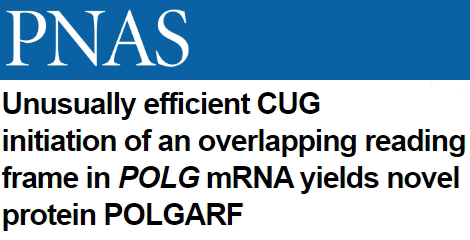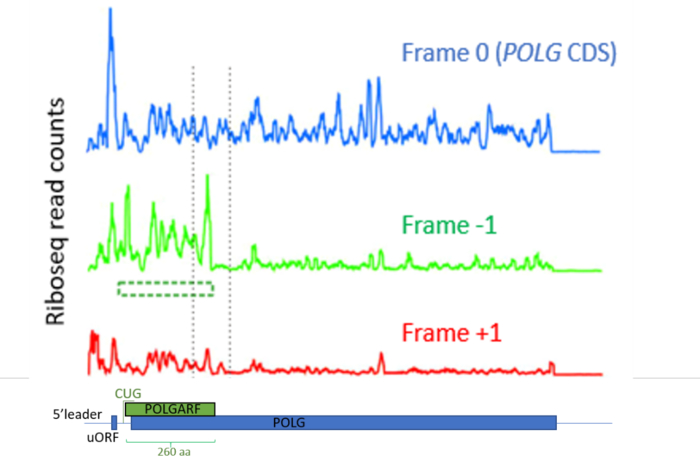Press-room / news / Science news /
Discovery of the novel protein encoded in mammalian mitochondrial DNA polymerase gene POLG
Researchers from Laboratory of bioinformatics approaches in combinatorial chemistry and biology and Laboratory of high-performance screening of biological objects together with colleagues from Moscow State University and University College Cork (Ireland) discovered novel protein POLGARF, which is encoded in alternative reading frame of mitochondrial DNA polymerase POLG mRNA. The results of this study are published in PNAS.



, , , , , Kovalchuk SI, Serebryakova MV, , , , , , Baranov PV, Andreev DE
Mitochondrial DNA polymeraseis essential for mitochondrial DNA replication. It consists of two subunits. POLG gene, which codes for catalytic subunit of polymerase, is notorious for more than 200 mutations linked to devastating inherited diseases. It is proposed that POLG mutations lead to progressive accumulation of mitochondrial DNA mutations and, subsequently, to organism disfunction and death. Andreev and colleagues discovered an efficient CUG start-codon in 5’-leader of POLG mRNA which initiates translation of a long alternative reading frame overlapping with POLG ORF. The new open reading frame is rather long (260 triplets in humans) and is conserved in placental mammals. The new protein was named POLGARF (POLG Alternative Reading Frame). POLGARF accumulates in nucleoli, but upon certain mitogenic stimuli is cleaved and secreted outside of cells. It has been proposed that POLGARF evolved approximately 100-200 mln years ago by MIR transposon insertion into POLG gene, which allows alternative reading frame translation and evolution of POLGARF protein coding function.


Figure 1. Ribosome profiling data shows that POLG mRNA is translated both in 0 frame (blue, mitochondrial DNA polymerase POLG) and in -1 frame (green, novel protein POLGARF)
september 25, 2020

